The RBRC (Responsible Business Research Conference) is an open and free event organized by the Tampere University RESPMAN Research Group for all researchers across the world, to promote research on corporate sustainability and business ethics. This year, with the financial support of the Foundation for Economic Education, the conference was organized for the 13th time, in a hybrid format, on 12–13 March 2025. I have participated in this conference since 2017, and I can see how the event is growing in its numbers and relevance. This year, the conference received 77 abstracts in both languages Finnish and English, and approximately 160 participants from 22 different countries registered. Thus, apart from its high-quality research presentations, the conference also offers an excellent opportunity for networking and research collaboration.
Since its foundation in 2006, the RESPMAN Responsible Management Research Group has actively participated in bridging the gap between business, society and nature relationships. The group´s purpose is significantly aligned with the United Nations´s sustainable development goals, focusing on responsible business and management, stakeholder engagement and value creation, sustainable development, circular economy, biodiversity, and business ethics. The main projects of this group are focused on business-stakeholders-nature connections (Business to Nature), on circular economy catalysts (CICAT2025) and the most recent ongoing project on collective stakeholder action (Action4Commons).
The conference kicked off with a powerful speech from the keynote speaker Professor Rajat Panwar, from the Oregon State University, USA. His presentation focused on corporate sustainability and its current research frontiers. The worldwide geopolitical tensions, the ongoing political changes, and the shadows of war are threatening our possibilities to tackle the current sustainability crisis through meaningful research. These are hard times for science, but in words of Professor Rajat Panwar: “Big, hairy, audacious problems require big, hairy, audacious research, denoted as BHAR.” Professor Panwar has high hopes on emerging scholars “defying entrenched paradigms and exploring bold solutions” to push bold, ambitious, and transformative research that solves complex problems globally, as highlighted in his recent blogpost about his participation in the RBRC 2025. (https://blogs.oregonstate.edu/collegeofforestry/2025/03/17/sustainability-beyond-borders-rajat-panwars-global-push-for-a-sustainable-bioeconomy/).
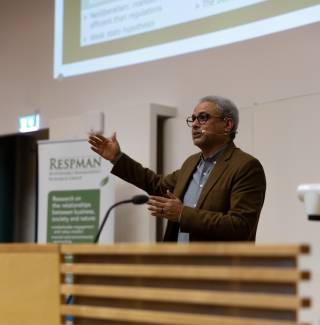
“The massive growth of corporate sustainability programs is not benign. It is a cancer.” – Professor Rajat Panwar
One of the main barriers in corporate sustainability recognized by Professor Panwar was “the big disconnect.” This means the gap between companies’ sustainability claims and the lack of real impacts emerging from their actions. Corporate sustainability programs grow in number, giving a false sense of acting and moving forward, while the sustainability crisis continues. This gap perhaps highlights a painful truth: corporate approach to sustainability is mainly instrumental, focusing on the profit-driven business case and relegating the moral case to a second place. Professor Panwar also highlighted a strong trust deficit towards governments, corporations, and even towards the media and NGOs. Once again, their transparency usually lacks real impacts. It seems this gap leaves us with a heartbreaking feeling of helplessness: If we cannot trust those in power to solve this situation, who is there to help us?
“Sustainability comes after breakfast.” – Professor Rajat Panwar
Professor Panwar also invited us to widen our scope and include social issues and other perspectives into the equation. He encouraged us to consider those living in the edge, whose social needs are still far from being met. Unfortunately, for them, environmental sustainability concerns can only be approached “after breakfast”. Winsemius & Ulrich (2013) already presented an environmental hierarchy of needs, and Raworth (2012) introduced the concept of doughnut economics. These studies visually show how sustainability can only be achieved after securing a social foundation. Professor Panwar also suggested leaving our western-centricity behind and look East, to the emerging high-polluting countries with whom we need to cooperate to find solutions. He requested us to look to the Global South as well, where stronger inequalities lead to a race to the bottom and, consequently, softer regulations that allow environmental crimes. I recently read some news about how protected trees in the Amazon rainforest are being cut to build a highway for an easier access to the COP30 climate summit to be held in November 2025 in Brazil (Wells, 2025). I think this is a perfect example of how unsustainable behaviors and social inequalities are extremely interrelated.
I especially appreciated Professor Panwar’s ideas, as sometimes I feel current research on corporate sustainability suffers from a western orientation, taking welfare and social needs for granted. I remember some words from a friend in Uruguay, who once told me that there is nothing better than being poor to be sustainable. She said that, only then, you will be forced to use your creativity and find new ways to repair and reuse. This makes me think about how much we could learn from those living in the edge, those struggling in the South, and those growing in the East if we could only expand our viewpoints. Perhaps it is time not only for big, hairy, audacious research, but also for research where you go down there, get your feet on the ground, and get dirty. Perhaps it is time to explore the power of bottom-top solutions as well.
“Sustainability isn’t short on solutions; it’s short on scale” – Professor Rajat Panwar
Professor Panwar finalized his speech advocating for further research on protecting nature and biodiversity, also in the corporate context. This statement goes in line with the panel organized on the second conference day: The future of business-biodiversity relations. The panelists were Professor Rajar Panwar, Professor Laura Albareda (LUT University) and Assistant Professor Anne Quarshie (Turku School of Economics) and it was chaired by Dr. Annika Blomberg and Dr. Riikka Tapaninaho. The goal of the panel was to examine how business can contribute to solve an emerging wicked problem: the biodiversity loss. Human beings and our anthropocentric lifestyles might lead not only to biodiversity loss, but also a possible ecosystem collapse. And somehow, we do not realize that we are also part of that ecosystem. As Waddock (2011) states: We are all stakeholders of the Gaia.
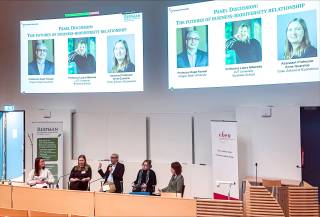
“We cannot exist without nature.” – Professor Laura Albareda
The panel identified some issues worsening biodiversity loss. Professor Albareda highlighted a big disconnect between companies and humans in general, and nature. The discussion stressed how nature is adapting to the effects of the sustainability crisis, but humans’ adaptation seems to be too reactive, avoiding the big painful systemic changes that this global problem requires. I believe humans tend to adapt and change small actions and behaviors, but barely the mindset that guides our values and actions instead.
Another important challenge is the lack of knowledge: we do not know how business-biodiversity relations should look like, and therefore, we cannot propose solutions and teach on the topic properly. Professor Panwar highlighted how biodiversity loss seems to be a problem even ahead of science, and teaching about it might require a strong philosophical approach. This made me think: is that really a problem, or a solution? Perhaps a philosophical approach might be beneficial. Perhaps that is what we need: to be able to slow down our lifestyles and be able to sit down and think, or better said, to reflect and rethink. Rethinking our way of understanding life and nature, and rethink our role on it, thus, reshaping our dominant role over nature. Degrowth, proposed several times by Professor Panwar as an alternative that might guide sustainability research, also proposes, among others, to slow down: a deceleration and a focus on sufficiency over economic growth (Kallis, 2020; Parrique, 2022).
The panel also offered some concrete examples of solutions to push business-biodiversity relations, such as regenerative business, corporate-state initiatives to protect high-valuable biodiversity areas, and stricter scrutiny to avoid lobbying against climate change. More abstract solutions were offered as well. Professor Albareda and Assistant Professor Quarshie highlighted the importance of value changes, giving more importance to values such as empathy, caring and respect towards all the beings around us. In doing this, Professor Albareda emphasized the concept of biophilia, which aims to establish connections with nature, and Assistant Professor Quarshie shared the Life Framework of Values which identifies: living from, in, with and as nature (Kenter & O’Connor, 2022).
“Hope is our strategy.” – Professor Rajat Panwar
The panelists also mentioned the importance of regulations and highlighted the key role of Europe as a leading political actor. I partially agree with this statement. On the one hand, as Merlinsky (2021) states: “all ecology is political” and the need for regulations is undeniable. On the other hand, I find this European approach somewhat slightly problematic, as it might reinforce power imbalances, forcing a European approach to biodiversity loss. Moreover, European companies are not free of guilt when it comes to exploiting someone else’s resources in the Global South. As Professor Albareda mentioned, biodiversity is connected to a place, to an ecosystem, so a local approach is necessary together with a European and more global approaches. Additionally, instead of focusing on global north solutions, perhaps we should also listen to those living in the places suffering the most, trying to identify the root of the problems to address them from scratch. I cannot conceive any solutions to the problem of biodiversity loss without listening to local communities, and especially, indigenous communities, to explore different alternatives and viewpoints to our current lifestyles.
Professor Panwar concluded: “Hope is our strategy. I am very hopeful about biodiversity research.” He also proposed the idea of using nature loss instead of biodiversity loss, probably more generally accepted term, as we all can connect with the term ´Nature´.
I want to go one step further and say: “Love is our strategy.” Love towards life and love towards nature. We need big, hairy, audacious changes in our priorities, in our values, in our lifestyles, not only to protect but to love what deserves to be loved: Our Beloved Mother Nature.
For more information about the RBRC Responsible Business Research Conference, which will be again organized in 11–12 March 2026, please visit: https://events.tuni.fi/rbrc/
Lara González Porras, Doctoral Researcher & University Teacher, Faculty of Management and Business
References
Kallis, G., Paulson, S., D’Alisa, G., & Demaria, F. (2020). The case for degrowth. John Wiley & Sons.
Kenter, J. O., & O’Connor, S. (2022). The Life Framework of Values and living as nature: Towards a full recognition of holistic and relational ontologies. Sustainability Science, 17(6), 2529–2542.
Merlinsky, G. (2021). Toda ecología es política: Las luchas por el derecho al ambiente en busca de alternativas de mundos. Siglo XXI Editores.
Parrique, T. (2022). Sufficiency means degrowth. Timothée Parrique. https://timotheeparrique.com/sufficiency-means-degrowth/
Raworth, K. (2012). A safe and just space for humanity: Can we live within the doughnut? Oxfam.
Waddock, S. (2011). We are all stakeholders of Gaia: A normative perspective on stakeholder thinking. Organization & Environment, 24(2), 192–212.
Wells, I. (2025). Amazon forest felled to build road for climate summit. BBC. https://www.bbc.com/news/articles/c9vy191rgn1o
Winsemius, P., & Guntram, U. (2013). A thousand shades of green: Sustainable strategies for competitive advantage. Routledge.

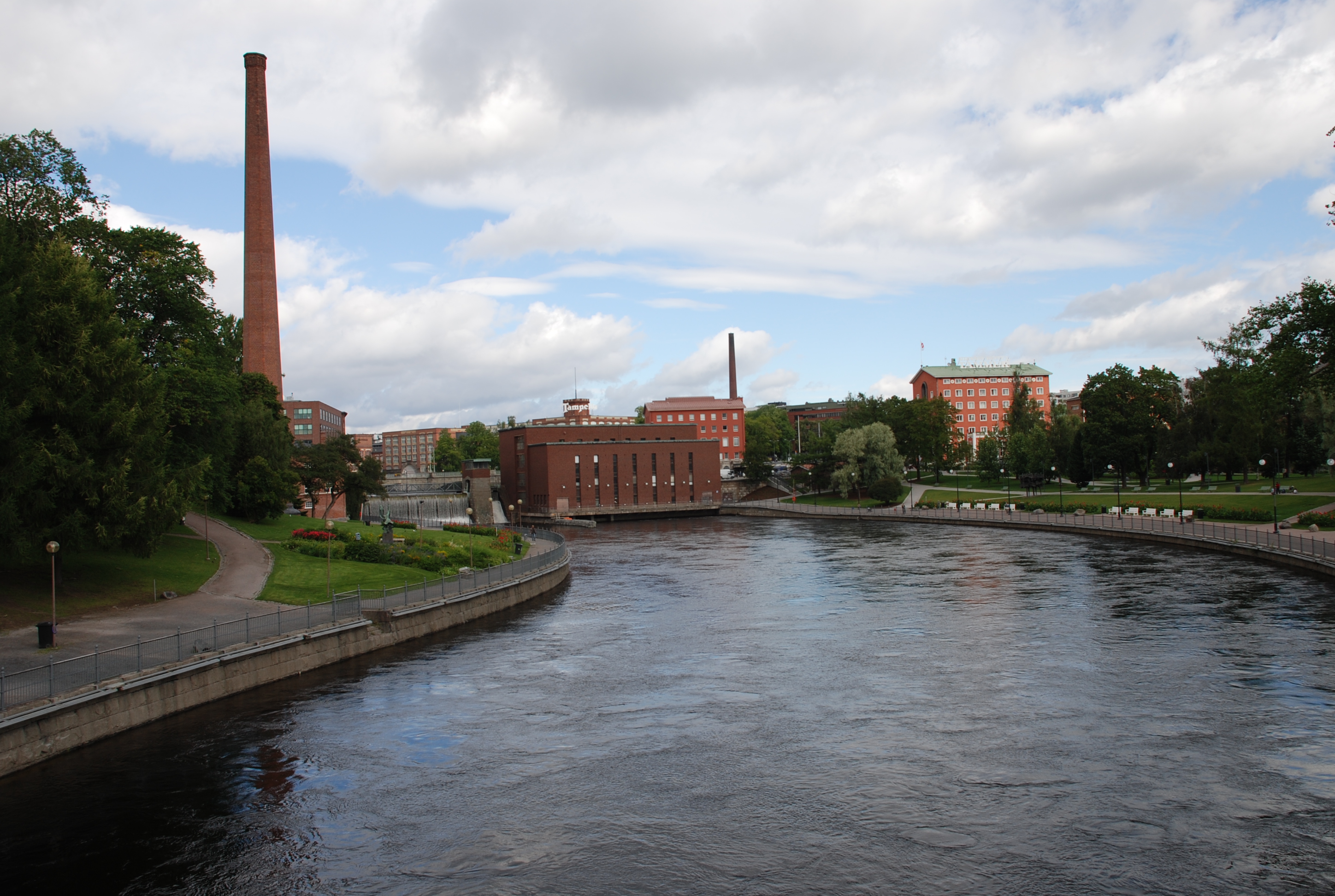
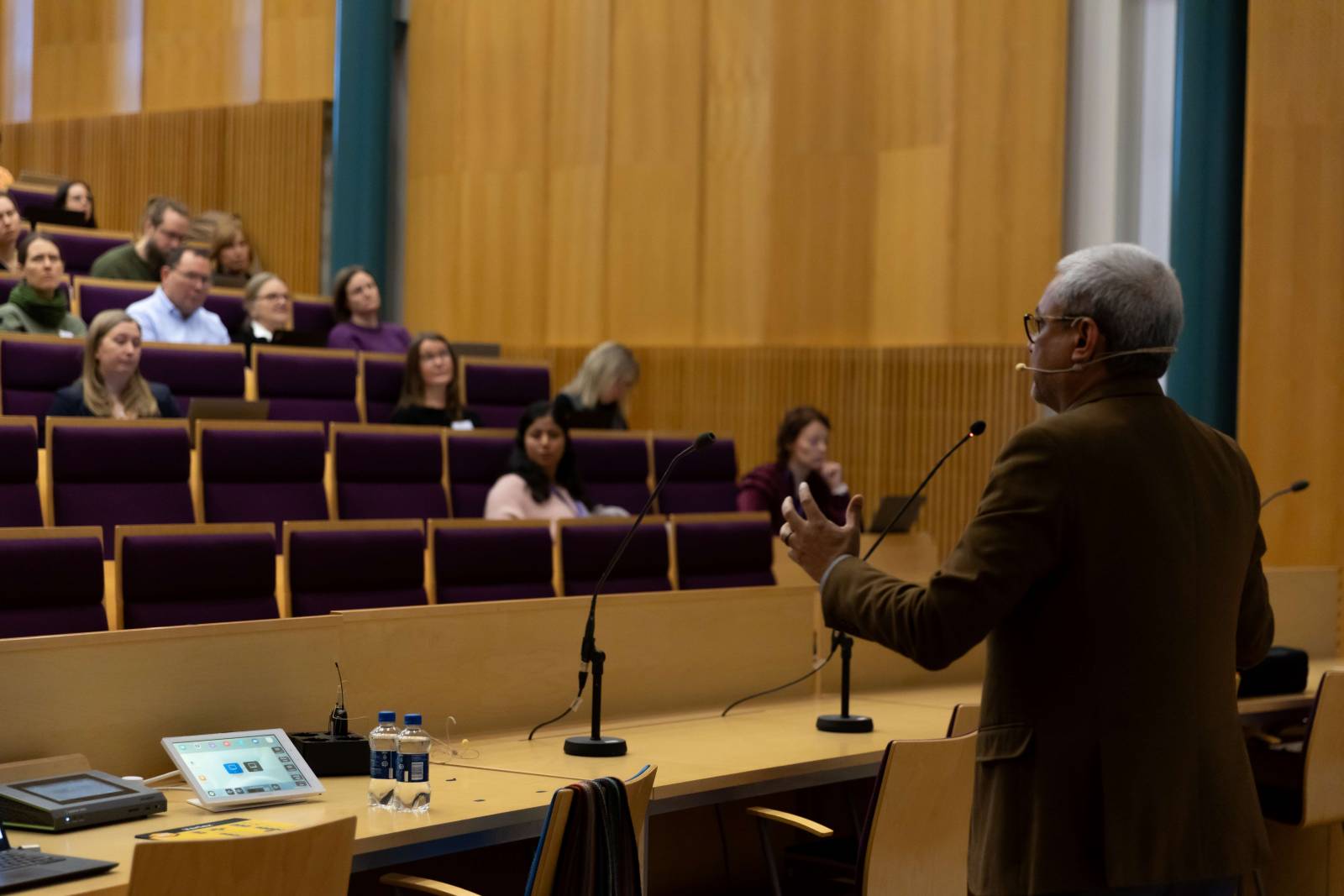
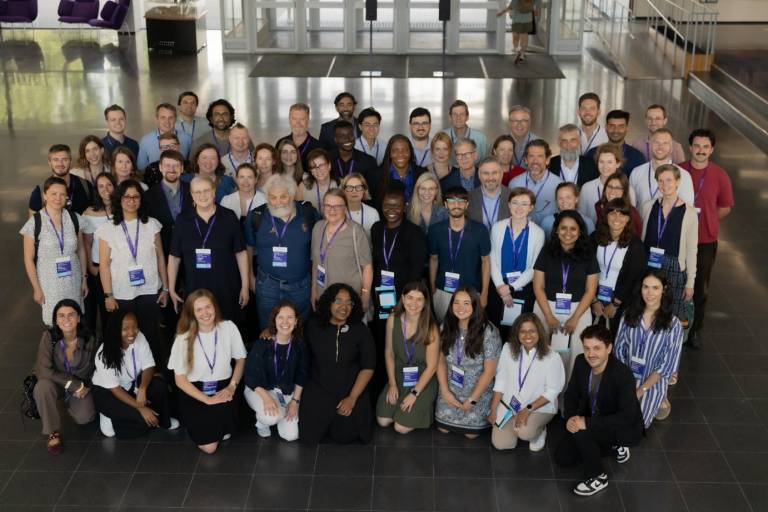


Kommentit